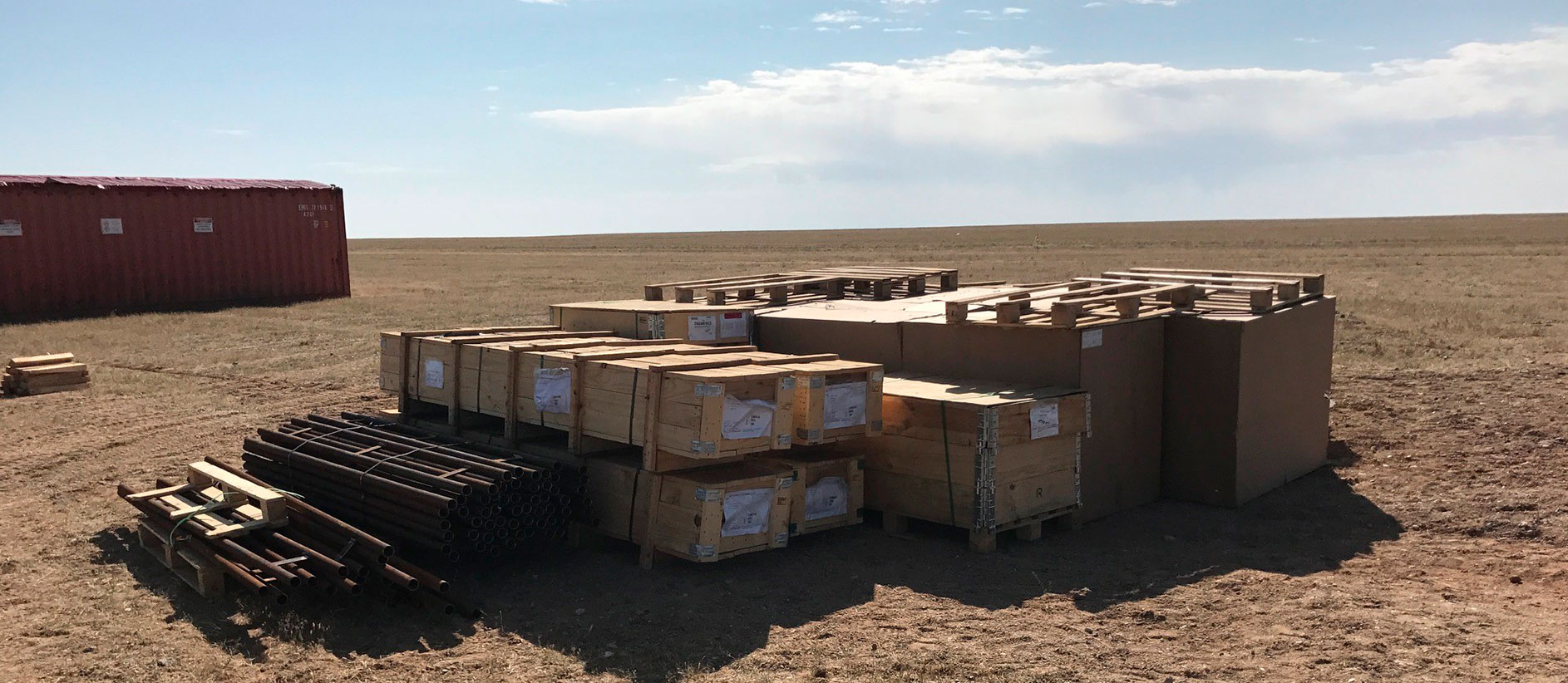Sainshand Salkhin Park LLC is located in the Gobi desert 460 km southeast of Ulaanbaatar, and it is the third privately financed wind farm in the country. The wind farm will cater for the increasing demand for electricity in Mongolia, and it will significantly enlarge Mongolia’s renewable energy capacity. The investment thereby supports Mongolia’s strategy that renewable energy should account for 20 per cent of all energy supplies in 2020 and 30 per cent in 2030.
– Sainshand is a very interesting project that contributes to growth in a poor country and at the same time reduces carbon emissions. We are therefore very pleased that the Danish Climate Investment Fund can contribute to implementing this project, which I am certain will have an important impact on Mongolia in the future, said Tommy Thomsen, CEO of IFU.
The total investment of USD 120m is financed by French energy leader ENGIE, German project developer Ferrostaal Industrial Projects GmbH. The Danish Climate Investment Fund and local investor Radnaabazar Davaanyam. The European Investment Bank (EIB) and The European Bank for Reconstruction and Development (EBRD) contribute with loan financing, of which part of EIB’s share of USD 47m is guaranteed by EKF.
– Establishing a private wind farm in a country like Mongolia is a complex matter. Financing requires close cooperation between many financial partners and the ability to cover both the country-specific and the project-specific risks. I am pleased that we have managed to finance the project debt with the European Investment Bank and the European Bank for Reconstruction and Development, said Christian Ølgaard, Deputy CEO, EKF.
Carbon savings of 200,000 tonnes
The wind farm will be built by China Machinery Engineering Corporation (CMEC) using 25 Vestas V110, 2.2MW wind turbines to deliver 55MW clean energy that will save an estimated 200,000 tonnes of carbon emissions per year. Construction has started and is expected to be completed before the end of 2018.
The project has been developed in consultation with the local communities and a detailed environmental impact assessment has been approved by the relevant national authority. Financing has been agreed following preparation of a comprehensive environmental and social management system compliant with international standards such as those of the EBRD, EIB, International Finance Corporation (IFC) and the Equator Principles. Special attention has been paid to improve the living conditions of a number of nomadic people and their animals in connection with the development of the project.
About the Danish Climate Investment Fund:
The Danish Climate Investment Fund is a public-private initiative established to secure funding for climate-related projects in developing countries and emerging markets as well as to promote the sale of Danish climate-related technology.
The Danish Climate Investment Fund will on a commercial basis help increase investments in climate-friendly projects in developing countries and emerging markets. The fund must ensure that countries can pursue economic development without aggravating the climate any further.
The fund contributes with risk capital to projects that reduce CO2 emissions. This is conducted in cooperation with Danish companies or large climate projects where Danish technology or know-how is included. Learn more here.
About EKF:
EKF is Denmark’s Export Credit Agency. EKF helps Danish companies raise financing and export insurance. EKF is guaranteed by the Danish state but operated as a modern financial enterprise. In 2016, EKF helped Danish companies ensure orders of DKK 29bn. This contributed to the creation of more than 13,000 jobs in Denmark.

